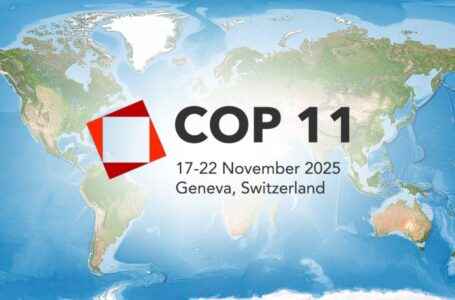Tobacco farmers in the Philippines are seeking protection from the growing illicit trade of cigarettes and vapes, underscoring the need for a new law that will reduce the price gap between legitimate and illegal products.
“The advantage of smuggled cigarettes compared to our local brands needs to be reduced,” the Philippine Tobacco Growers Association (PTGA) said in a statement.
The group expressed support for House Bill 11360, which aims to impose structured tax increases on tobacco products and prevent the growing illicit trade of cigarettes and vapes in the country.
Illicit trade threatens the livelihood of about 40,000 farmers relying on tobacco farming, the PTGA said, adding that successive increases in excise taxes on tobacco products have fueled the growth of illicit trade, making it difficult for local growers to compete.
“Despite our commitment to producing quality crops and goods, we find ourselves struggling under the burden of escalating taxes imposed by the government,” PTGA said.
The PTGA linked the decline in demand for locally produced tobacco to the prevalence of smuggled cigarettes, which do not use locally grown leaves.
The PTGA said 80 percent of their sales go to the export market, but even this has been affected by the surge of illicit tobacco in the local market. “Our earnings would be better if only legitimate and local cigarettes were sold in the market,” the PTGA said.
Revenue from excise taxes on tobacco products has been falling since 2021, when it reached P176 billion ($2.99 billion). The Bureau of Internal Revenue (BIR) fell P52 billion short of its P185 billion tobacco excise tax target in 2024, collecting only P134 billion. This shortfall impacts the funding of crucial government programs, including healthcare services that rely on excise tax collections from tobacco products.
In the same period, the adult smoking rate increased from 18.5 percent in 2021 to 23.2 percentin 2023, largely due to rising illicit trade.
In February 2025, the House of Representatives approved HB 11360. The bill proposes the creation of the Inter-Agency Tobacco Illicit Trade Council, chaired by the Department of Finance, to implement measures to curb illicit trade of cigarettes and vapor products and strengthen enforcement. The bill also proposes a structured schedule of tax increases and a unified tax rate for nicotine salt and freebase vapor products.
Nueva Ecija Rep. Mikaela Suansing, the bill’s sponsor, had said the proposal could result in an “aggregate revenue recovery of 66 billion pesos across five years, stop the rise of smoking rate and prevent the slide of excise tax collection.”
At the 2nd International Tobacco Agricultural Summit hosted by the National Tobacco Administration in January 2025, The Federation of Free Farmers (FFF) also called for the inclusion of tobacco farmers in government agencies and decision-making bodies to protect their livelihoods and strengthen anti-smuggling initiatives.
Former Agriculture Secretary and FFF board chairman Leonardo Montemayor said farmers are key stakeholders in solving the problem.
“It is vitally important for real solution-seekers to consider these matters from a ‘worm’s eye view’,” Montemayor said, while advocating for the early appointment of farmers to the Anti-Agricultural Economic Sabotage Council.
National Tobacco Administration (NTA) administrator Belinda Sanchez outlined the severe consequences of illegal tobacco sales on government revenue and national security.
“The continuing proliferation of illegal tobacco sales in the local market is causing a decline in government revenue. This reduction in funds limits the resources available for essential public services, particularly universal health care,” Sanchez said.

“Moreover, proceeds from illegal tobacco sales are often linked to organized crimes, further threatening national security,” Sanchez said.
Sanchez said over 430,000 farmers, farmworkers and their families are directly affected by the growing prevalence of smuggled and counterfeit tobacco products.
Sanchez called for a comprehensive and coordinated response. “There is an urgent need for a multi-faceted approach against illicit trade that includes strengthening national policies, enhancing regional cooperation, improving enforcement mechanisms, and increasing public awareness,” she said.
Aside from affecting public funds, the illicit tobacco trade also takes a toll on the country’s 2.2 million Filipinos who rely on the tobacco industry for their livelihoods.



















